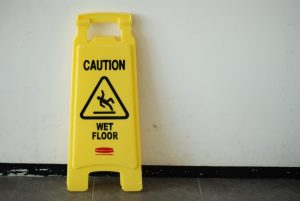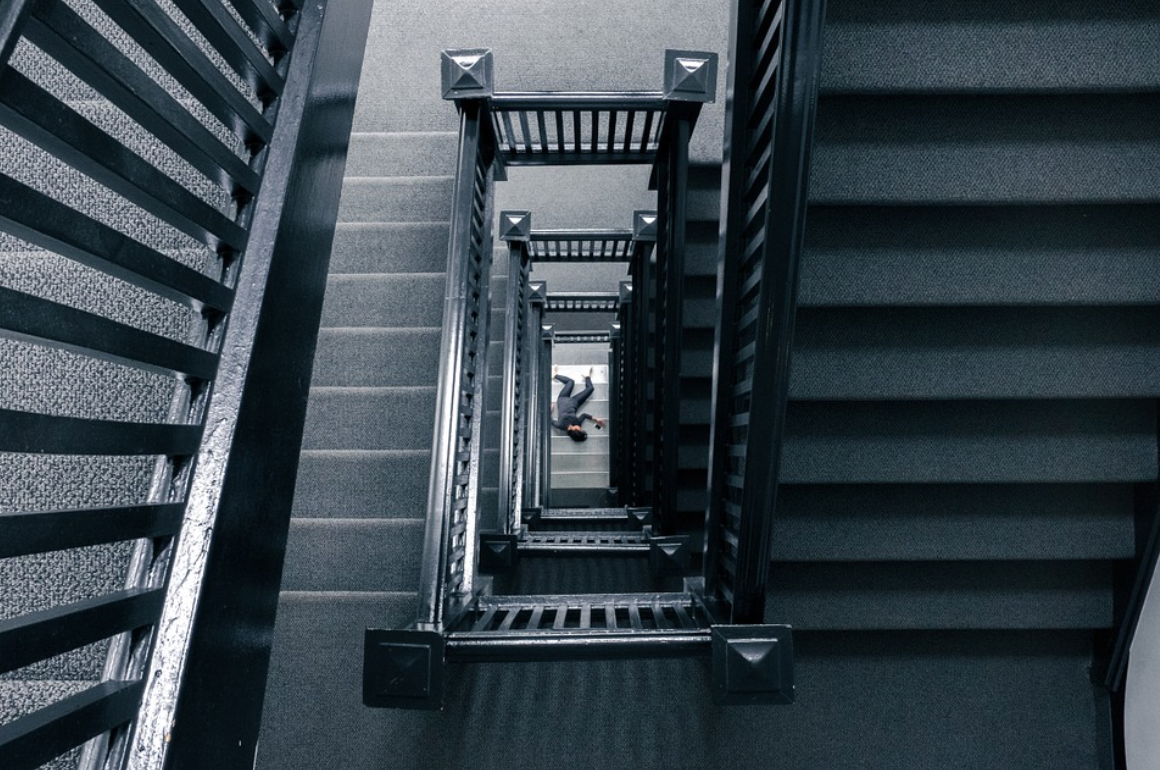Insurance companies are always anxious to blame plaintiffs for their accidents. That’s why it’s important to have an experienced accident attorney to represent you after a falling down stairs accident.
If you have ever fallen down a set of stairs, you know much it can hurt. Stairs can be very easy to trip on. Unlike a fall on flat ground, a fall down the stairs can have a bit of a snowball effect. In such a fall, the combination of the stairs’ angle and the laws of physics can synergize to cause serious injury. On top of the physical damage, a fall down a set of stairs can be very traumatizing mentally.
Common Injuries from Falling Down the Stairs
Many types of injuries can happen when you fall down a set of stairs. The same kinds of injuries often seen after a fall on a sidewalk also occur in staircase falls. However, in staircase falls, the severity has a tendency to be much worse. Broken bones, including ribs and legs, are not uncommon after a staircase fall. Soft-tissue and ligament injuries, like those that happen to professional football players, are equally common. This is because the amount of force put on your body by the gravity of a staircase fall is similar to the force applied to a football player’s body when they are running at full speed and fall or when they collide with other players.
Similarly, traumatic brain injury (TBI) and spinal cord trauma frequently accompany a fall down stairs. In a sense, falling down a stairway is not too different from being in a car wreck. The common thread between injuries from stairway falls, car wrecks, and football is that our body absorbs a significant amount of kinetic energy in all three situations.
Georgia Negligence Rules
Like many other jurisdictions, Georgia’s negligence rules have four requirements that must all be shown by an injured party to get compensation. Those requirements are:
- A duty of care;
- Breach of the duty;
- Damage; and
- Causation.
To illustrate these requirements, let’s consider a hypothetical injury from falling down stairs. Imagine you are in a hotel stairwell leaving for a night on the town. As you turn on a landing of the stairwell, you slip on a wet floor with no warning sign. You tumble down to the next landing, fracturing your wrist in the fall. In this situation, the hotel owner owes a duty of care to you, a guest on their property, to maintain a reasonable level of safety and warn you of dangers. You can reasonably expect that a wet staircase will have a warning sign, which was not the case here. Thus, the owner likely breached their duty by failing to warn of the wet floor. There is apparent damage in your fractured wrist, and the cause of that damage is the fall. Thus, all four negligence requirements are met, and the hotel owner is liable to compensate you for damages.

Comparative Negligence
Georgia has a modified comparative negligence rule that is important to keep in mind. Under this rule, a court has to account for the injured party’s negligence and assess whether their negligent actions contributed to the damage. If such a contribution is evident, the injured party’s damages may be reduced proportionate to their fault. If the injured party is 50% or more to blame, then they are not due compensation.
Continuing with the hotel stairs example, let’s imagine that you were rushing down the stairs without hanging onto the handrail when you fell. In that case, you might be partly at fault for the accident, and you may not be able to recover your full compensation.
Insurance companies are always anxious to blame plaintiffs for their accidents. That’s why it’s important to have an experienced accident attorney to represent you after a falling down stairs accident.


Join the conversation!